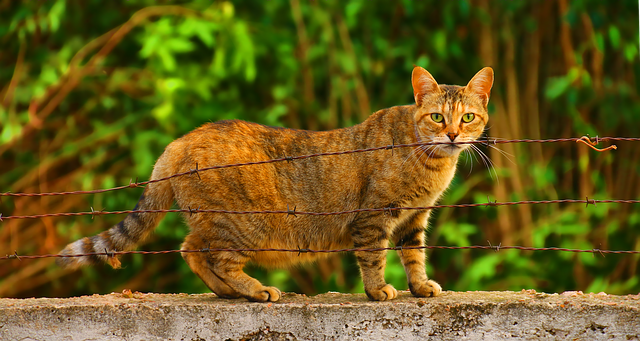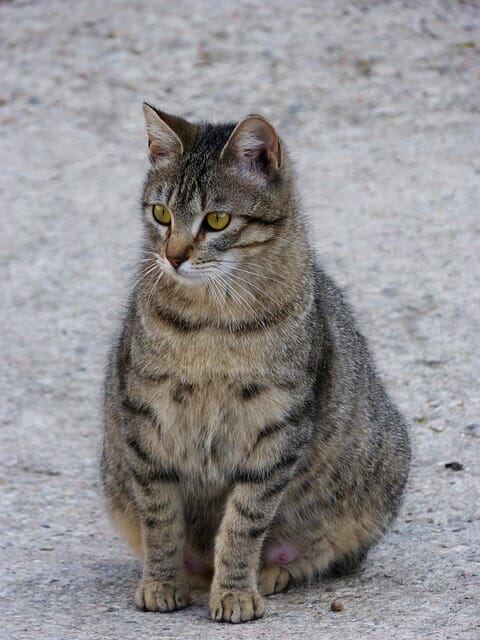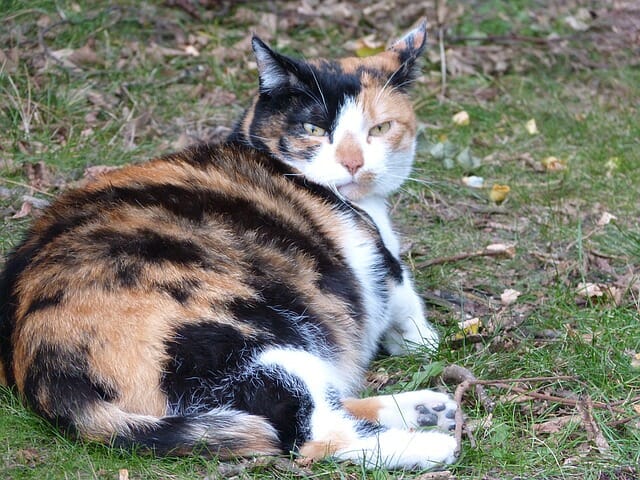How to Know if Cat Is Pregnant: Signs of a Pregnant Cat and How to Take Care of It
A pregnant cat may become more affectionate, seeking more attention than usual, or become more reserved, preferring to spend more time alone. They may experience nausea and a decreased appetite. The nipples of a pregnant cat will typically become enlarged and pinker than usual. They may start to exhibit nesting behavior, such as seeking a secluded area to make a nest.
Table of Contents
Signs of a Pregnant Cat


Heat Cycles Change
Heat cycle changes are another common physical change in pregnant cats. During pregnancy, the cat’s reproductive system undergoes significant changes that can cause a halt in its heat cycles. A pregnant cat will stop going into heat, which means she will not exhibit the typical signs of heat, such as increased vocalization, agitation, and interest in mating.
However, it is important to note that a cat may still exhibit these behaviors even if she is pregnant, especially in the early stages before her hormones have fully adjusted. For example, if you suspect your cat is pregnant, it’s always best to consult a veterinarian to confirm the pregnancy and discuss any changes in her behavior or health.
Weight Gain
Weight gain is a common physical change that occurs in pregnant cats, according to the Small Door Veterinary. As the pregnancy progresses and the kittens develop, the mother’s body requires more energy and nutrients to support their growth. This increased demand for nutrients can lead to weight gain in the mother cat. However, the amount of weight gain can vary depending on the number of kittens, the stage of pregnancy, and the cat’s overall health and nutrition.
However, ensuring that the cat does not become overweight during pregnancy is important, as this can lead to complications during delivery. Therefore, a balanced and appropriate diet and regular checkups with a veterinarian can help ensure that the cat maintains a healthy weight during pregnancy.
Increased Appetite
Increased appetite is a common physical change that occurs in pregnant cats. As the cat’s body works to support the growth and development of her unborn kittens, it requires more energy and nutrients. This increased demand for nutrients can cause the cat to experience hunger more frequently and need to eat more often.
It is important to ensure that the cat consumes a balanced and appropriate diet to support her increased appetite and nutritional needs during pregnancy. Additionally, it’s important to monitor the cat’s weight and ensure that she does not become overweight during pregnancy, as this can lead to complications during delivery. In addition, a veterinarian can help guide you in selecting an appropriate diet and managing the cat’s weight during pregnancy.
Nesting Behavior
Nesting behavior is a common behavioral change that can occur in pregnant cats as they prepare for delivery. As the pregnancy nears its end, a pregnant cat may exhibit nesting behavior, such as seeking a quiet, comfortable place to give birth. This behavior can include searching for a secluded spot, gathering soft materials to create a nest, and being more protective of her chosen location.
Some cats may also become more restless and exhibit anxiety or discomfort as they approach delivery. It’s important to provide the cat with a safe, comfortable, and quiet place to give birth and access fresh water and food.
Increased Sleep Patterns
Increased sleep patterns are a common behavioral change that can occur in pregnant cats. As the pregnancy progresses, the cat’s body requires more energy to support the growth and development of her unborn kittens. This increased demand for energy can cause the cat to feel more tired and require more rest. In addition, pregnant cats may spend more time sleeping or lounging in quiet, comfortable places and may be less active or playful.


However, it’s important to ensure that the cat is still getting regular exercise and movement to maintain her physical and mental health. For example, suppose you notice any concerning changes in your cat’s sleep patterns or activity level or have questions about her health or behavior during pregnancy. In that case, it’s always best to consult a veterinarian.
Nipple Enlargement
Nipple enlargement is another common physical change that occurs in pregnant cats. As the cat’s pregnancy progresses, her body prepares for nursing the newborn kittens by increasing blood flow to the mammary glands and causing the nipples to become more prominent and enlarged. This prepares the nipples for the demands of nursing and helps the kittens easily find and latch onto them.
Nipple enlargement is typically one of the earlier signs of pregnancy and can be observed as early as two to three weeks into the pregnancy. However, it is important to note that nipple enlargement alone does not necessarily confirm pregnancy, and it’s always best to have a veterinarian perform a physical exam and diagnostic tests to confirm a cat’s pregnancy.
Swollen Abdomen
An enlarged abdomen is a common physical change that occurs in pregnant cats. As the kittens develop inside the mother’s womb, they take up more space and cause the mother’s abdomen to expand. The extent of the enlargement will depend on the number of kittens the mother is carrying, as well as their size and stage of development.
In some cases, an enlarged abdomen can also be a sign of other health conditions, such as a tumor or fluid buildup in the abdomen, so it’s important to consult with a veterinarian to rule out any potential issues. For example, during a cat’s pregnancy, regular checkups with a veterinarian can help identify and address any potential health problems promptly.
Vomiting
Vomiting is a possible physical change in pregnant cats, particularly in the early stages of pregnancy. This is because hormonal changes during pregnancy can cause digestive issues, such as nausea and vomiting. Additionally, the increased demand for nutrients can cause the cat to eat more quickly or foods that are harder to digest, contributing to vomiting.
However, it’s important to note that vomiting can also be a sign of other health issues, such as gastrointestinal problems or infections, and should be monitored closely. For example, suppose you notice your cat vomiting frequently or experiencing other symptoms, such as loss of appetite or lethargy. In that case, it’s important to consult with a veterinarian to rule out any potential health concerns.
Restlessness
Restlessness is a behavioral change that can occur in pregnant cats, particularly in the later stages of pregnancy. As the cat’s body prepares for delivery, she may become more restless and exhibit signs of anxiety or discomfort. This can include pacing, restlessness, meowing, or searching for a comfortable place to give birth. Some cats may also exhibit nesting behavior, such as gathering soft materials and creating a nest.


Things to Do if My Cat Is Pregnant
- Schedule a veterinary visit: You should first schedule a veterinary visit to confirm the pregnancy and assess the cat’s health. Your veterinarian can help determine how far along the pregnancy is, advise you on the cat’s nutritional needs, and recommend any necessary vaccinations or treatments.
- Provide proper nutrition: A pregnant cat requires a balanced and nutritious diet to support the growth and development of her unborn kittens. Please consult your veterinarian to determine the best diet for your cat during pregnancy, and always provide her with fresh water.
- Create a comfortable space: As the pregnancy nears its end, your cat may exhibit nesting behavior and search for a quiet, comfortable place to give birth. Provide your cat with a safe and comfortable space, such as a quiet room with a soft bed, where she can give birth and care for her kittens.
- Monitor the cat’s health and behavior: Keep a close eye on your cat’s health and behavior during pregnancy. Look for discomfort or distress, such as restlessness or excessive vomiting, and report any concerns to your veterinarian.
- Prepare for the arrival of the kittens: Make sure you have all the necessary supplies, such as a litter box, food and water bowls, and toys, for the kittens’ arrival. Additionally, research how to care for newborn kittens and be prepared to provide them with proper care and nutrition.
